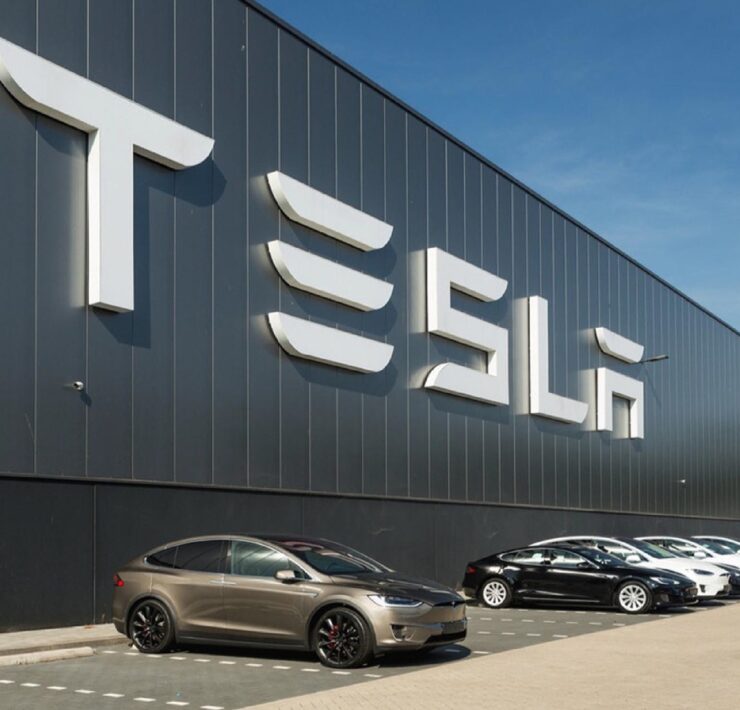Explore the Best EV Stocks in India 2024

As the world moves towards sustainable transportation solutions, electric vehicles (EVs) have emerged as a pivotal force in shaping the automotive industry.
In India, the EV sector is witnessing rapid growth, with several key players making significant strides in innovation and market presence. Let’s explore the top EV stocks in India.
What Are EV Stocks?
Electric vehicle stocks, abbreviated as EV stocks, represent shares of companies involved in various aspects of the electric vehicle ecosystem in India.
This encompasses businesses engaged in the production, manufacturing, and distribution of electric vehicles, batteries, motors, EV software, and charging stations.
With the Indian government’s steadfast focus on promoting electric mobility as part of its sustainable development agenda, the demand for electric vehicles and related technologies is on the rise. Consequently, the best EV stocks in India are gradually becoming the preferred choice for investors seeking to capitalize on this growing market trend.
| Top EV Companies | Market Cap (in Cr) | Stock Price |
| HBL Power Systems Ltd | ₹14,645 | ₹511 |
| Bajaj Auto | ₹2,30,734 | ₹8,148 |
| Ecoplast Ltd | ₹113 | ₹ 381 |
| Tata Motors (TAMO) | ₹ 3,26,841 | ₹ 983 |
| Avance Technologies Ltd. | ₹ 309 | ₹ 1.56 |
| Mahindra & Mahindra (M&M) | ₹ 2,40,088 | ₹ 1,930 |
| Exide Industries | ₹ 27,629 | ₹ 325 |
| Hero MotoCorp | ₹ 92,063 | ₹ 4,605 |
Top EV Stocks to Invest in 2024
HBL Power Systems Ltd.
HBL Power Systems Ltd. is a leading provider of advanced battery and power electronics solutions with a global presence. The company is dedicated to research and development, offering a comprehensive range of products and services catering to various industries worldwide. Their offerings include batteries for automotive, industrial, defence, and telecom sectors, showcasing their commitment to innovation and quality.
Bajaj Auto (BAJAJ-AUTO)
Bajaj Auto Limited, with a rich history dating back to 1945, is a renowned player in the Indian automobile industry. Known for its diverse range of motorcycles, scooters, and auto-rickshaws, Bajaj Auto has also shown interest in exploring the electric two-wheeler category. With a strong global presence and a focus on innovation and affordability, Bajaj Auto remains a significant contributor to India’s automotive sector.
Ecoplast Ltd.
Ecoplast Ltd. stands as a reputable Indian electric vehicle stock, specializing in the production and supply of multilayer polyethylene films. With over 40 years of experience, Ecoplast has earned a stellar reputation for delivering high-quality products, fostering innovation, and providing reliable service. Their strong presence in the market underscores their dedication to meeting customer needs and maintaining industry leadership.
Tata Motors (TAMO)
Tata Motors Limited, a division of the renowned Tata Group, stands as a major player in the Indian automotive landscape. With a diverse portfolio ranging from industrial trucks to passenger automobiles, Tata Motors has been instrumental in driving the evolution of EVs in India. The introduction of models like the Nexon EV underscores Tata’s commitment to sustainable transportation solutions. Through strategic partnerships and continuous innovation, Tata Motors remains poised to capitalize on the burgeoning EV market in India.
Avance Technologies Ltd.
Avance Technologies Ltd. is an Indian-based information technology (IT) company established in 1985. This EV stock excels in offering a wide array of digital marketing and technology solutions designed to help businesses thrive. From software development to hardware solutions, Avance Technologies leverages its extensive expertise to deliver tailored and high-quality solutions. By driving efficiency and growth for businesses globally, Avance Technologies remains at the forefront of the IT industry in India.
Mahindra & Mahindra (M&M)
Mahindra & Mahindra (M&M), a prominent multinational automaker, has established a strong foothold in India’s automotive industry. Renowned for its SUVs and utility vehicles, Mahindra has also ventured into electric mobility with products like the eVerito and eKUV100. By prioritizing sustainability and innovation, Mahindra is contributing significantly to India’s quest for eco-friendly transportation solutions.
Exide Industries (EXIDEIND)
Exide Industries Limited is a leading player in India’s energy storage and automobile battery markets. Established in 1947, Exide has emerged as a trusted manufacturer of high-performance batteries for various applications, including EVs. With a commitment to quality and innovation, Exide Industries continues to play a pivotal role in powering India’s automotive industry towards a sustainable future.
Hero MotoCorp (HEROMOTOCO)
Hero MotoCorp, the world’s largest manufacturer of motorcycles and scooters, is a key player in India’s two-wheeler market. While traditionally focused on internal combustion engine vehicles, Hero MotoCorp has expressed interest in electric mobility. With a wide distribution network and a reputation for fuel-efficient, affordable vehicles, Hero MotoCorp is poised to make waves in the electric two-wheeler segment.
Why should you Invest in EV Stocks?
Investing in EV stocks presents a compelling opportunity for individuals looking to capitalize on the burgeoning electric vehicle market.
Here are several reasons why people should consider investing in EV stocks:
Rapid Growth Potential: The global shift towards sustainable transportation solutions is fueling rapid growth in the EV sector. With governments worldwide implementing policies to promote EV adoption and combat climate change, the demand for electric vehicles is expected to soar in the coming years.
Investing in EV stocks allows individuals to tap into this growing market and potentially benefit from substantial returns.
Environmental Considerations: As concerns about climate change escalate, there is increasing pressure on industries to reduce carbon emissions. Electric vehicles offer a cleaner alternative to traditional internal combustion engine vehicles, emitting fewer greenhouse gases and pollutants. By investing in EV stocks, individuals can support companies at the forefront of environmental sustainability initiatives.
Technological Innovation: The EV industry is characterized by rapid technological innovation, with companies constantly striving to enhance battery efficiency, increase vehicle range, and improve charging infrastructure. Investing in EV stocks provides exposure to cutting-edge technology and innovation, allowing investors to participate in the development of next-generation transportation solutions.
Government Incentives: The governments offer incentives and subsidies to promote the adoption of electric vehicles, such as tax credits, rebates, and grants. These incentives can stimulate demand for EVs and drive revenue growth for companies involved in their production, manufacturing, and infrastructure development. Investing in EV stocks allows individuals to leverage government support for the sector.
Diversification: Including EV stocks in an investment portfolio can enhance diversification and reduce overall risk. The EV industry operates independently of traditional sectors like oil and gas, making it less susceptible to fluctuations in commodity prices and geopolitical tensions. By diversifying into EV stocks, investors can mitigate risk and potentially achieve more stable long-term returns.
Long-Term Outlook: The shift towards electric vehicles is not just a passing trend but a fundamental transformation of the automotive industry.
As technology advances, battery costs decline, and infrastructure improves, EVs are expected to become increasingly mainstream. Investing in EV stocks allows individuals to position themselves for long-term growth and capitalize on the electrification of transportation.
Investing in EV stocks offers the opportunity to participate in a rapidly growing market, support environmental sustainability initiatives, benefit from technological innovation, leverage government incentives, diversify portfolios, and position for long-term growth. As the world embraces electric vehicles as the future of transportation, investing in EV stocks can be a prudent financial decision with the potential for significant returns.
Last notes
Investing in electric vehicle (EV) stocks in India offers a compelling opportunity for investors to capitalize on the rapidly growing sector. By assembling a diversified portfolio of top EV stocks, investors can potentially achieve attractive returns while contributing to a more sustainable future.
To seize the opportunity presented by the EV revolution, Arihant Capital stands ready to assist investors in taking the first step towards a profitable and environmentally conscious investment journey. With thorough research, analysis of industry leaders, consideration of government incentives, and strategic portfolio management, investors can navigate the dynamic landscape of EV stocks in India.
From established giants like Tata Motors and Mahindra & Mahindra driving innovation to emerging startups such as Exide Industries shaping the energy storage market, the EV sector in India offers a spectrum of investment possibilities. Government initiatives, infrastructure development, and international collaborations further enhance the growth prospects of the industry.
By staying informed and adapting portfolios to industry trends, investors can position themselves to capitalize on the long-term growth potential of EV-related equities in India, ensuring their investments align with both financial goals and sustainability objectives.
FAQs
1. Q: What are electric vehicle (EV) stocks?
EV stocks refer to shares of companies involved in the production, manufacturing, and distribution of electric vehicles, batteries, charging stations, and related technologies.
2. Q: Why should I consider investing in EV stocks in India?
Investing in EV stocks in India offers the potential for attractive returns, given the country’s growing focus on sustainable transportation solutions and the rapid expansion of the EV market.
3. Q: How can I invest in EV stocks in India?
Investors can invest in EV stocks through various avenues, including direct stock purchases, exchange-traded funds (ETFs) focused on the EV sector.
4. Q: What are some examples of top EV stocks in India?
Leading EV stocks in India include Tata Motors, Mahindra & Mahindra, Exide Industries, and other companies involved in electric vehicle production, battery manufacturing, and related technologies.
5. Q: What factors should I consider before investing in EV stocks?
Before investing in EV stocks, it’s essential to conduct thorough research, and assess the company’s financial health, growth prospects, competitive positioning, and the regulatory environment governing the EV sector.
6. Q: Are EV stocks considered a sustainable investment?
Yes, investing in EV stocks aligns with sustainability goals as electric vehicles produce fewer emissions compared to traditional vehicles, contributing to environmental conservation efforts.
7. Q: How do government policies impact EV stocks in India?
Government policies, such as incentives, subsidies, and regulations promoting electric mobility, can significantly impact the performance of EV stocks by influencing consumer demand and industry growth.
8. Q: What role does infrastructure development play in the EV sector?
Infrastructure development, including the expansion of charging networks and battery recycling facilities, is crucial for the widespread adoption of electric vehicles and can impact the long-term viability of EV stocks.
9. Q: How can I stay informed about developments in the EV sector?
Investors can stay informed about the EV sector by following industry news, monitoring company announcements, attending conferences, and utilizing investment research platforms to track EV-related stocks.
10. Q: What are the long-term prospects for EV stocks in India?
The long-term prospects for EV stocks in India appear promising, driven by factors such as increasing consumer awareness, technological advancements, government support, and the global transition towards sustainable transportation solutions.








